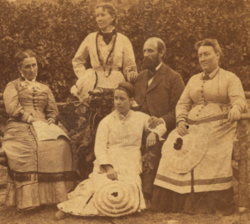This article has multiple issues. Please help improve it or discuss these issues on the talk page. (Learn how and when to remove these template messages)
|
| Cleveland v. United States | |
|---|---|
 | |
| Argued October 10, 1945 Reargued October 17, 1946 Decided November 18, 1946 | |
| Full case name | Cleveland et al. v. United States |
| Citations | 329 U.S. 14 (more) 67 S. Ct. 13; 91 L. Ed. 12; 1946 U.S. LEXIS 1725 |
| Case history | |
| Prior | 146 F.2d 730 (10th Cir. 1945) |
| Holding | |
| Affirmed. Notwithstanding the fact that polygamy is a person's religious belief, the Mann Act prohibits the transportation of women across state lines to participate in polygamy. | |
| Court membership | |
| |
| Case opinions | |
| Majority | Douglas, joined by Vinson, Black, Reed, Frankfurter, Jackson, Burton |
| Concurrence | Rutledge |
| Dissent | Murphy |
| Laws applied | |
| 18 U.S.C. 398 | |
Abrogated by | |
| Child Sexual Abuse & Pornography Act of 1986, Pub. L. No. 99-628, § 5(b)(1), 100 Stat. 3510–11 (in part) | |
| Mormonism and polygamy |
|---|
 |
|
|
Cleveland v. United States, 329 U.S. 14 (1946), was a case in which the Supreme Court of the United States held that notwithstanding the fact that polygamy is a person's religious belief, the Mann Act prohibits the transportation of women across state lines to participate in polygamy.[1]
© MMXXIII Rich X Search. We shall prevail. All rights reserved. Rich X Search
